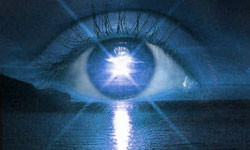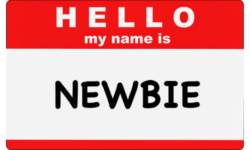I’m buried in paperwork for a tax deadline in a few days, but I don’t want a whole month to go by without a blog entry, so here we go.
My idea for a blog post usually comes from something I read on the forum, something I don’t agree with and want to explain. This one is no exception.
Clear vision is the result of using your eyes in the easiest way possible. People learning this may do things very well for a few seconds, but inevitably they then feel compelled to do something weird with their eyes and abandon the easy way without giving it enough of a chance. If you’ve worked at vision improvement at all, you’ve found that your quality of vision varies. At one end of the scale is the best flashes of clear vision. At the other end of the scale is your extremely blurry vision where things aren’t just typically bad but even blurrier, and you might even see double or multiple images. Like clear flashes, the worst vision won’t last for more than a moment and you can get rid of it pretty quickly by doing just about anything. Do you try to get rid of your worst vision by doing something, such as blinking quickly several times, or tensing your eyes in some way, or “stretching” your eyes by looking far up or to the side? Instead of doing that, you should be treating it as the best opportunity you’ve gotten all day.
Here’s why. Bear with me.
We are largely operating by habit, by programming that we have accepted and created for ourselves over the years by repeating and affirming actions and thoughts. It’s in the way we talk, the way we do our morning routine getting ready for work, the way we do everything that we don’t have to dedicate our full attention to. Bad vision is the result of programming that does not serve you for seeing clearly. There are little things you do that throw it off every time and cause your vision to remain perpetually in almost good working order, constantly sabotaged in every moment. Programming is necessarily tied to the conditions that the program recognizes for it to apply itself to. Imagine walking into a room and it’s chaos. A Peewee Herman style breakfast machine is running, some kid is shooting a paintball gun at a cat, there’s some naked old man doing jumping jacks, and there’s an earthquake. You’re intensely aware, and you’re speechless and you don’t know what to do. In an extreme case of not knowing what to do, where your programming completely fails and you try to grasp at it to tell you what to do, you have a panic attack. But in a less extreme situation, you’re intensely aware of the situation, you consciously consider what’s going on, and you take a conscious action, without much help from your programming. It’s in that moment that you’re more aware and in control than ever.
So in that moment when your vision is much worse than typical, you’re able to be aware of what you’re doing. Your programming isn’t used to such bad vision and doesn’t know how to run as well under that condition, so it won’t distract you so much by directing crazy actions and crazy thoughts that keep your vision bad.
It’s your opportunity to notice everything you’re doing in how you’re looking at something. Why did you just move your eyes away to something else? Why did you just blink harder than necessary? Are you holding your breath, or breathing shallowly? Why did you just try to constrict your field of vision? It’s your chance to question every little thing and consider whether you should be doing it. Would someone with normal vision (meaning correct programming for their vision) do this thing you just did as a matter of routine? It won’t be obvious what is and isn’t correct, so you have to think about it.
So going back to the beginning of this post, another way of thinking about what you’re doing is considering whether this is what you want your process of normal vision to be like all the time. What do you want to have to do all the time with your eyes or with your attention? It has to be sustainable and very easy, or it doesn’t make sense.
I want to talk more about breathing and grounding yourself physically, which I went over a little bit in a recent post. But I’ll go into that more in the next post I think, to keep this one focused.
I founded iblindness.org in 2002 as I began reading books on the Bates Method and became interested in vision improvement. I believe that everyone who is motivated can identify the roots of their vision problems and apply behavioral changes to solve them.

